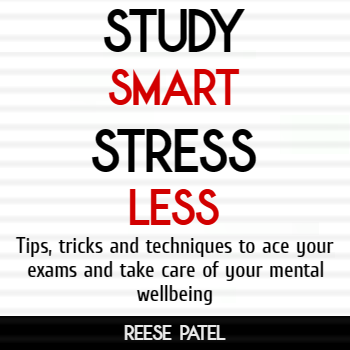Addiction – my tips for recovery
(≈13 min read)

Luke Davies: “When you can stop you don’t want to, and when you want to stop, you can’t.”
If there’s one thing I should emphasise about addiction, it’s that it does not discriminate. It doesn’t matter if you’re burning money for fun or struggling to pay rent, happily married or single, living in a castle or on the streets; anyone can fall prey to it.
Once you become so intrinsically tied to an activity to provide yourself with relief, that to let go seems virtually impossible, learning to rediscover who you really are can be incredibly difficult. It might even feel like the effort that’d be required to get rid of the addiction outweighs the potential positive consequences that might come from doing so.

They say a bird trapped in a cage for a long time will prefer the cage to freedom. But with addiction, it’s even worse than this; after a short period of time, the initial rush you get from your addiction will most likely not provide enough relief or pleasure for you anymore. You’ll want more. You’ll need more.
And so you’ll give yourself even more pleasure and as the pleasure escalates, so will the subsequent pain of regret. And how is this pain cured? Well…through pleasure. And then with the pleasure comes pain and to cure that pain you use pleasure. Not a particularly pleasant cycle to become trapped in.
So the question is: what can we do to increase our chances of breaking free? That’s what I’ll be answering in this article. But before anything, the first thing to examine is why addictions form in the first place.
Why addictions form
Dr Gabor Maté, a physician and specialist in addiction suggests that addiction is not a choice people make but rather a response to emotional pain.
According to Maté, unaddressed trauma we experience growing up (typically at childhood) explains why most addictions form. It’s important to note that when I say ‘trauma’, it doesn’t have to be as severe as what you you’re probably picturing.
‘Trauma’ is simply an experience of emotional pain – whether that pains stems from social isolation, overprotection, abuse, loneliness, anxiety, depression or grief is irrelevant. Maté suggests that addiction is simply a response to this unaddressed pain.
Addiction is there to fill a hole within, and that’s usually achieved through an individual turning towards some form of instant gratification. As Russell Brand puts it in his book, “Recovery”:
“Addiction is when natural biological imperatives, like the need for food, sex, relaxation or status, become prioritised to the point of destructiveness.”
If there’s a sense of hopelessness or pain in some area of your life, instead of expending the colossal amount of mental energy required to solve it, addiction presents itself as an easy alternative. The addiction will likely be easy, pleasurable and make you feel good in the short term.
So before discussing techniques to help counter your addictions, it’s important to try and consider what hole this addiction may be filling in your life. An addiction is a holding pattern of sorts, to sustain you and prevent something worse from happening.
Eckhart Tolle – “Every addiction starts with pain and ends with pain. Whatever the substance you are addicted to – alcohol, food, legal or illegal drugs, or a person – you are using something or somebody to cover up your pain.”
In order to get better, it’s important you try and find that underlying issue – where all this pain is stemming from. It might just be that the pain is you being deprived of a human necessity like ‘connection’. Just ask yourself what your addiction is doing for you? Is it meeting a certain biological need that otherwise wouldn’t be met?
Sometimes, when you’re able to establish the underlying cause and address that, the addiction will no longer have a purpose and so things will automatically sort themselves out.
As Maté says, instead of asking “what’s wrong with you?” to someone with addiction we should ask instead, “what happened to you?”
The 12 step program
In recent history, the most popular form of recovery has been the ’12 step program’ which uses spirituality and this notion of ‘looking to something beyond yourself’ (in this program God), in order to spark change.
The only issue I have with the 12 step program is that it’s not exactly great for us atheists. It’s surprisingly hard to ask God to remove your shortcomings without actually believing in God. So in this article, I’ve ensured all the techniques I suggest are applicable to everyone, religious or not.
Acknowledge that you are currently helpless
As I’m sure you’ve discovered, it’s very difficult to admit you have a problem, a problem that’s going to require serious effort to change. Why? Well because by admitting you have a problem, you’re simultaneously admitting that there is the potential of change. Change, however, is not something that’s pleasurable in the short term. Change will likely require a huge amount of pain and suffering and sacrifice.
You’re essentially going to have to voluntarily kill your current self (metaphorically of course) in order for the possibility of a better self. So it’s natural for your brain to push that thought of change away and instead continue numbing daily discomfort with temporary pleasure.
But if you do want to change, the first step is acknowledgement; the acknowledgement that there is a problem and that it is having an inherently negative impact on life and that you, just using your own brain are helpless.

Now, I know that might sound really pessimistic, me telling you to tell yourself that you’re helpless, but how are you expected to rely on the very thing that gave you the addiction in the first place, the very thing that keeps making you relapse and keeps convincing you to try that addiction ‘one last time’, to make you better? If recovery has not worked before, why will it work this time? As Einstein said, doing the same thing over and over and expecting different results is insanity.
Look, if there is no problem…then there is no problem. If you’re able to engage in temporary pleasure without it having a negative impact on your life, then lucky you. Carry on doing what you’re doing and enjoy life.
But if deep down you know that reliance on this addiction is having a detrimental effect on your life then simply acknowledging that things could be better but you, with the knowledge you currently possess, don’t know how to make things better is a really good first step.
Establish a deeper reason for change
When life is devoid from any kind of deeper meaning, it’s incredibly easy to fall into the trap of relying on short term pleasure to sustain us through the hardships of life.
With an addiction, reliance on this short term pleasure gradually worsens and the addiction begins to consume you. The addiction is like a hijacker in your brain and the more you indulge in it, the more you’re hardwiring it in. To try and rid an addiction that’s deeply rooted therefore is going to require much more than simply ‘I’m going to stop doing this thing I know is bad for me.’ It’s going to require that you have some kind of deeper purpose. A quote from the German philosopher, Nietzsche:
“He who has a why to live for can bear almost any how.”
The quote is discussed in quite some depth in Victor Frankl’s novel, “Man’s search for meaning” where he outlines how those in Nazi prison camps who had some reason to continue living, whether that be to see their children or to finish their novel, were much more likely to survive than those who didn’t.
By establishing that true why, that ultimate noble goal, you’re giving yourself a strong reason to rid your addiction. The key here is that this reason should ideally not be based on you. You need to call on something beyond yourself. In most 12 step programs, this thing is God, but there are plenty of other things you can use. As I discuss in the next section, you need to find something in your life you truly value.
Finding that reason
When attempting to determine your underlying reason for giving up an addiction, you first need to establish what things in life you truly value. A useful way to do this is by asking yourself the following question:
“Why do I not commit suicide?”
Look, I know initially this question might appear pretty morbid but it really is a useful question to ask. Usually the answer will be along the lines of: your partner, your children, your friends, playing whatever sport you love to play. Whatever your answer/answers are, these are all things you truly value.
Now out of all these things, pick the one or two that you’d say you value most – let’s say for example your children and your partner – your family. Now you’ve established a reason beyond yourself to remove this addiction – you’re not doing this for you, you’re doing it for them.
But to entrench that motivation even deeper, you can ask yourself the question “why?” continuously. If that isn’t entirely clear, let me give an example. Imagine a father wants to rid his alcohol addiction. He’s established that he values his children above all.
“I value my children and so will try and stop my alcohol addiction for them.”
“Why will you try and stop your alcohol addiction for your children?”
“Because they deserve a father who’s there for them and can play with them as they grow.”
“Why do they deserve a father who’s there for them and can play with them as they grow?”
“Because I want them to have the best lives they can and I know me being there for them will help achieve that.”
Can you see how now for the father, it’s no longer just, ‘I want to give up alcohol for my children’ but rather ‘I want to give up alcohol so I can be there for my children and play with them because I want them to have the best lives they can’. Much more powerful.
Anytime this father now has an urge to drink, he can remember the underlying reason as to why he’s going to give alcohol up. Obviously this is just an example but the same technique of asking yourself ‘why?’ after each response can help you too to find a deep reason to justify why you need to remove your addiction.
Are you willing to give up your addiction forever?
Once you’ve established a deeper purpose for why you need to take back control of this addiction before it ruins your livelihood, the next stage is imagining how it might feel to be without this addiction.
And not in a temporary way. You need to be willing to never engage in this addictive activity for the rest of your entire life. Sounds scary, I know. But if you’re not willing to give up this thing forever, the chances of change actually occurring are small. If you’re brain sees even the slightest window of opportunity, it’ll pounce.
It’s obviously a huge deal – committing to be ok with never engaging in this thing until you die, but the way I see it, you’re doing this for a better life. If this addiction is truly controlling you and having a really damaging and detrimental impact on your life then something needs to give, sacrifices need to be made.
Life will be full of sacrifices – things you need to give up in the present for a better future and things you must endure in the present for a better future and it’s your job to decide which sacrifices to make.
The heaven/hell technique
Asking yourself questions and laying out answers in a detailed manner can be an invaluable tool when you’re looking to change. Here are two useful questions you might ask yourself when trying to rid an addiction:
“If I continue living with this addiction and don’t make the changes in my life that I know I should, then in three years’ time, what will my life look like?”
The idea is not just to read that question and let it slip through your brain. You have to stop. Think. And after you’ve done a lot of thinking, perhaps over the next day or two, map out in detail how you think your future might unfold. Spend a while just writing. What do you really think will happen? Will your addiction worsen? Will it have an impact on your family? On your friends? On your career?
The purpose of this question is to create a kind of hell for you to run away from. Now when you are deliberating whether you want to indulge in that addiction, there is no uncertainty – you can always refer to this and know what’ll happen if you don’t change. When the future is cloudy, reliance on instant gratification is relatively easy, turning towards temporary pleasure becomes almost inevitable. But now we have a hell to run from, it would be useful to have somewhere to run towards…
“If I change my life and can successfully eradicate this addiction from my life, then in three years’ time, what will my life look like?”
Now for the fun part! Imagine you were able to recover and get over this addiction. Again, spend a while thinking about exactly what impact this might have on your life. How much time would you save? How much money would you save? What things would you be able to do with this spare time? How might your mood change? How might your relationships with others change? What would removing this addiction enable you to do?

Paint a rough picture – it doesn’t have to perfect. But it’s essential that you spend a good amount of time really thinking. Don’t just half-heartedly spend ten minutes writing the first things that come to mind. Give yourself a day or two to really think.
The idea is that now every time you hear your brain telling you to indulge in that addiction, you now have something to refer to. Take a fleeting glance at your heaven and hell. Which direction do you want to go? Having these loose and unarranged thoughts concretely laid out as best and worst case scenarios can help to give you that extra push and remind you why change is necessary.
Taking a closer look at your past
Earlier in the article, I mentioned that addiction is often a response to emotional pain. This pain could be anything from loneliness to lack of connection to extreme self-consciousness to anxiety to depression to trauma.
As I noted earlier, recognising what biological imperative it is that you might be lacking can really help. But I haven’t yet discussed in detail how you might go about dealing and processing painful events that have already happened.
Here’s where the 12 step program comes into play. As opposed to the original step, I’ll refer to the modified version Russell Brand uses in his book ‘Recovery’ where reliance on God is not necessary. Slightly rephrasing to remove the profanity Brand uses (just swap out ‘messed’ with an appropriate swear word for the original version), the step suggests you should:
Write down everything that is messing you up or has ever messed you up.
Obviously what constitutes as ‘messing you up’ is somewhat subjective, but I’d suggest writing down anything that’s ever caused you a significant degree of emotional pain. Brand specifically narrows down on resentment and encourages you to list down everything you can ever remember that made you resentful. But I’d suggest that you could also write down anything else that you remember hurt you emotionally.
When you’re recalling events that happened way back when you were a little kid, it’s important not just to note the event but also why you think it caused you emotional pain, and what aspect of you, you think it affected.

So for example if you recall a time where some kid at school bullied you, slapped the ice cream from your hands, you might first note that you felt emotional pain and perhaps resentment towards this kid. Then you would ask yourself why. You might note for example that this kid made you feel alone and isolated, as if you were not part of the group. You could then go on to say that it therefore affected the part of you that craves human connection (here you’re noticing the biological imperative). You can repeat this process for almost any event or memory.
I know doing this might feel incredibly monotonous and mundane and boring but if addiction really does stem from emotional pain, highlighting which parts of you were hurt and actively trying to address them is an extremely useful process. If you are constantly seeing the same part of you that’s affected, then now you have something to work with. If you can work on fixing that, then the addiction might sort itself out.
ACT, mindfulness and urge surfing
An addiction is heavily dependent on thoughts, primarily faulty thoughts. ACT – acceptance and commitment therapy – is a kind of therapy that encourages you to embrace your thoughts and feelings rather than fighting or feeling guilty for them. One of the purposes of ACT is to ensure those unconscious wants and desires you feel don’t control you. Since the thoughts and desires you have are in your mind, it’s only natural for you to take ownership of them. After all, they are your thoughts.
But just because you have a thought or desire, you don’t have to take ownership. The rational portion of your brain didn’t ask for that thought or desire to be there; it in a sense bubbled up from a deeper more primitive part.
William Irvine, professor of philosophy and proponent of stoicism, uses the ‘roommate analogy.’

He suggests that living with this primitive subconscious mind that provides intrusive thoughts is like having a roommate who keeps telling you what you should think, want and feel (for example he/she might try convincing you to indulge in your addiction).
You might succeed to get the roommate to shut up for a bit but soon they’ll be right back at it, making new suggestions. If you actually had a roommate like this, not only would you lose your sanity, but you’d presumably move out if they refused to negotiate. The problem is, you and this roommate are stuck together in your skull until your very last day on Earth.
That’s where mindfulness comes in – you need to devise a strategy to deal with this roommate situation because exercising willpower to shut up your roommate constantly is too exhausting.
Mindfulness enables you, in the analogy, to know the dynamics of the situation better. By practising mindfulness you can learn to cultivate a better relationship with this roommate and realise that although he/she can tell you what to think and do, you don’t have to listen.
You don’t have to take ownership of the thoughts this roommate provides. The idea is that by using the rational part of the mind you can better deal with the sub-rational part (the roommate).
The basic concept is that if an unwanted thought arises, let’s say for example:
“I need to eat that cake”

You can simply acknowledge that that thought is there, acknowledge that it is just a thought, a string of words that you can choose whether or not to listen to, acknowledge that it is not helpful and then simply wait for that thought to move on. A nice way of helping yourself to do this is as soon you recognise you’ve had that thought about cake, say to yourself:
“I’m having the thought that I need to eat that cake”
The simple addition of ‘I’m having the thought that…’ helps dissociate you from the thought. It helps you to recognise that just because you are having this thought, you don’t have to act on it.
Acknowledging a thought and waiting for it to pass is not the same thing as repressing the thought and pushing it away. It’ll only come back stronger. Like a dark cloud passing through the sky, you just need to wait until that thought drifts away, realising it has no influence or power to make you do anything at all.
The idea is, to outline a Buddhist idea, for your thoughts “to become like robbers in an empty house”. They cannot affect you or hurt you or take anything away from you. You should instead view your thoughts as a kind of consistent and constant background radio noise that you can choose whether or not to pay attention to. You can tune in for the helpful thoughts and just allow that blur to continue for the unhelpful ones. That’s very different from actively trying not to listen to the radio; you are instead allowing it to play unbothered.
Another technique that might help you when you experience cravings is a technique known as urge surfing.
Urge surfing
Whenever we feel a sudden compulsion to engage in that activity we know will be detrimental to our future self, it’s incredibly hard to let that urge fade away without acting on it. A way that might help counter is this is a technique called ‘urge surfing’ that revolves around using mindfulness and connection with the present to allow this urge to pass.

The idea is that you want to ride the urge you have like a wave. Don’t try and repress the urge or push it away. Just simply let the wave rise and fall.
Pretend you’re a curious scientist and interested about how this urge makes you feel, what physical sensations it evokes. You can rate the urge intensity for example on a scale of 0-10 every couple of minutes or so until it passes.
It can also be useful to really focus on your breath. Feel the air flow down your throat and fill your stomach. Then exhale and let go. Try and direct all your attention towards your breath as you breathe into the urge, making room for it.
If the urge arises at an inopportune time to engage in deep breathing, you can also try to focus your energy and attention on doing whatever activity you’re doing, while allowing the urge to simply come and go.
Some people find that when they can’t engage in breath work (for example when they’re at work) ‘habit replacement’ can work too. The idea is that while you’re waiting for this urge to pass, you could focus your attention on something else, for example tapping your wrist or rubbing your hands.
Be aware of your mortality
Now for a piece of advice you’re unlikely to find in other addiction related articles, perhaps because it’s stupid, perhaps because it’s just never been thought of before (probably the former). For me personally, one of the best things to bear in mind when I’m trying to rid an addiction is the idea that one day I’m going to die. I know it might be a hard pill to swallow but soon you’ll be gone and everyone you love and everything you know will be gone too. Happy times.
You have a choice now about how you live these remaining days. You have a choice about whether you want to continue suffering, living a life devoid of meaning all the way up until your deathbed.
On your deathbed you can either feel regretful about having not changed or you can decide you need to change right now before it’s too late. Don’t wait until you’re on your deathbed for those regrets about how you could have had better memories with your family for you to realise that you should have changed. Change before it’s too late.
This, everything, will soon be over. And the more you’re actively aware of this fact, the more you’ll realise that every minute you waste on this planet is a minute you’ll never get back. Use the time you have left wisely.
A final note
As with every article I write, the various methods and techniques I suggest are ones that have personally worked for me. I’ve gone through the process of reading those tens of books and cycling through method after method, discovering the ones that work best for me in the hope that they work well for you too. But obviously something as deep and as complex as addiction will inevitably require deeper excavation than simply reading this article. I hate to say this, but you’ll find that just reading this article is sadly not gonna be enough to cure your addiction.
Read, research, try techniques and find things that work for you personally. I can’t tell you what will work; no one can. Your brain and the way you operate will be different to any other person on this planet. That means that although I can suggest techniques that might help, there’s no guarantee they will.
If these techniques or techniques offered elsewhere don’t seem to be working for you, please seek external help. No tips you read online should be used as a substitute for any treatment or therapy you are currently undergoing. Go and find an expert, a psychologist that can help you. There are also loads of addiction support groups that might help too.
When I say you need to ‘put in the work’, I don’t mean to say that it’s your fault you have an addiction and that if you had better willpower things would be fine. As I’ve said multiple times, this is anything but your fault. Addiction is a response to emotional pain, something beyond your control.
It’s my view that instead of treating people with addiction as people who lack willpower, we should instead recognise that there is a reason this addiction has manifested, a reason likely to do with prior pain. So I’ll repeat it one more time because I think it’s so important:
As Gabor Maté says, instead of asking “what’s wrong with you?” to someone with addiction, we should ask instead, “what happened to you?”
Millions of people in the world have suffered from addiction and millions have recovered. Ultimately, it’s in your control. Just like how all those people out there changed, you can too.









